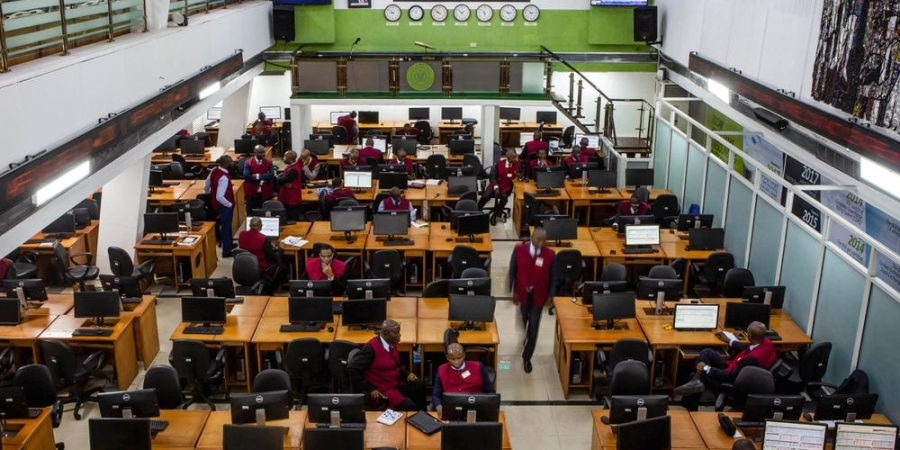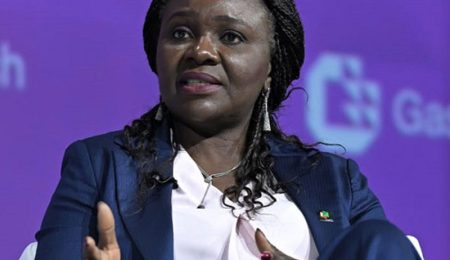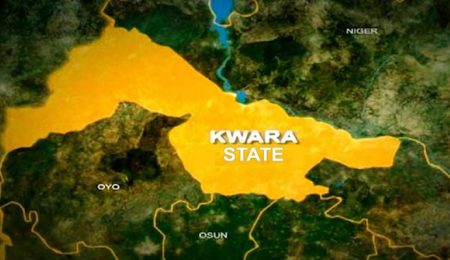The total transactions by foreign and domestic investors on the Nigerian stock market increased to N3.4 trillion in the first five months of 2025.
Also on Friday, investors’ demand for banking stocks on the Nigerian Exchange Limited (NGX) lifted the market capitalisation by N175 billion due to the clarity on forbearance, as market participants reacted positively to signals that leading banks were on track to exit regulatory constraints, paving the way for potential dividend payments and renewed earnings growth.
These emerged as a global index compiler, the Morgan Stanley Capital International (MSCI), said it requires more time to properly evaluate the impact of Nigeria’s foreign exchange reforms before bringing back the country on the MSCI Frontier Markets Index.
The latest “domestic & foreign portfolio participation in equity trading” report released by Nigerian Exchange Limited (NGX) on Friday showed that total transactions on the bourse increased by 51.8 per cent, from N2.25 trillion in the first five months of 2024.
THISDAY had reported that the NGX’s market capitalisation gained N7.7 trillion in the first five months of 2025, attributable to strong earnings by listed companies, and foreign investors steadily participating in some listed fundamental stocks.
However, in the first five months of 2025, foreign and domestic transactions performance represented a new record for the stock market, driven by Pension Fund Administrators (PFAs) and domestic high network investors increasing participation.
The report revealed that in the first five months of 2025, Foreign Portfolio Investments (FPIs) accounted for 29.17 per cent of transactions on the Nigerian market, as against the situation in the previous year when foreign transactions amounted to 20.37 per cent.
On the flipside, the proportion of participation by domestic investors dropped from 79.63 per cent in the first five months of 2024, to 70.83 per cent in the first five months of 2025.
The latest report showed that total foreign portfolio transactions moved to N996.03 billion in the first five months of 2025, representing an increase of 117.34 per cent from N458.29 billion in the first five months of 2025.
For domestic investors, the total transactions in the first five months of 2025, stood at N2.42 trillion, which was about a 35.02 per cent increase from the N1.79 trillion recorded in the first five months of 2024.
The surge in foreign investors’ participation was against the backdrop of CBN recent reforms in the foreign exchange market aimed at enhancing transparency, compliance, and market stability.
These reforms were part of the CBN’s broader strategy to create a fairer, more stable foreign exchange market and support economic growth through better monetary policies.
In tandem with these reforms, the CBN, so far in 2025, has maintained the status quo on Monetary Policy Rate (MPR), with the goal of curbing inflation and stabilising the naira, a move supported by the International Monetary Fund (IMF).
Analysts stated that the Nigerian stock market shows less volatility amid a new era of unpredictability, marked by tariff threats and rising global tensions, that may prompt emerging market investors to look for shelter in frontier markets that are relatively safe from US President Donald Trump’s trade policy shifts.
The report indicated upbeat activity across the buy and sell sides of foreign transactions. Foreign inflows jumped to N486 billion in the first five months of 2025, from N190.82 billion in five months of 2024.
Outflows, on the other hand, moved from N267.47 billion in the first five months of 2024 to N509.60 billion in the first five months of 2025.
Analysts attributed the upbeat at the stock market to the increasing attractiveness of the Nigerian market to foreign investors, ongoing economic reforms, resilient earnings by Nigerian companies, exchange rate differential, ongoing banking recapitalisation and the reform in the oil sector.
According to the report, the historical analysis of domestic and foreign transactions, revealed that over 18-year period, domestic transactions increased by 33.15 per cent from N3.556 trillion in 2007 to N4.735 trillion in 2024; whilst foreign transactions also increased by 38.31 per cent from N616 billion to N852 billion over the same period.
“Total domestic transactions accounted for about 85 per cent of the total transactions carried out in 2024, whilst foreign transactions accounted for about 15 per cent of the total transactions in the same period,” the report added.
The Vice President, Highcap Securities Limited, Mr. David Adnori, in a chat with THISDAY, attributed the increase in foreign investors’ participation to the federal government’s moves to resolve foreign exchange backlogs, which he argued increased investor confidence.
“In summary, Nigeria’s high-yield environment, recent regulatory reforms, a large and growing market, and supportive international signals make it an attractive destination for foreign investors seeking growth and diversification,” he added.
On his part, the Managing Director, Arthur Steven Asset Management, Mr. Olatunde Amolegbe, said the ongoing banking recapitalisation and the reforms in the oil sector have driven more investors to the market.
Meanwhile, investors’ demand for Guaranty Trust Holding Company and other listed banking stocks on the NGX lifted the market capitalisation by N175 billion.
GTCO gained 6.52 per cent to close at N84.95 per share as the market capitalisation closed trading on Friday at N74.534 trillion, which was about N175 billion or 0.24 per cent increase from N74.359 trillion it opened for trading.
Also, Stanbic IBTC Holding Company appreciated by 2.35 per cent to close at N87.00 per share, while Fidelity Bank gained 1.04 per cent to close trading at N19.40 per share.
The likes of Access Holdings advanced by 0.46 per cent to N21.90 per share as First Holdco increased by 0.37 per cent to close at N26.95 per share.
The NGX Banking Index was up by 20.42 basis points or 1.6 per cent to close at 1,241.32 basis points from 1,261.74 basis points the stock market opened for trading.
In the meantime, the MSCI has said it requires more time to properly evaluate the impact of Nigeria’s foreign exchange reforms signalling that the country was unlikely to regain its place on the MSCI Frontier Markets Index in the immediate term.
Bloomberg noted that the MSCI in its latest annual market accessibility review, acknowledged that Nigeria has made operational improvements in its foreign exchange market, especially with enhanced liquidity conditions.
However, the MSCI maintained that, “more time is needed to assess the impact of these changes.”
Nigeria was dropped from the MSCI Frontier Markets Index in February 2024 following months of severe liquidity constraints, which left many foreign investors stranded, unable to repatriate capital, dividends, or profits.
The MSCI is expected to announce the results of its annual classification review on June 24. Countries included in the index typically see greater foreign investor participation, resulting in higher valuations.
Despite recent reforms, most notably President Bola Tinubu’s decision in mid-2023 to allow the naira to float more freely, MSCI argued that deeper structural issues still linger.
“Upgrades prompt a short-term wave of enthusiasm accompanied by capital flows, including ahead of the upgrade taking effect,” London-based Dragon Capital stated in a report.
Since last year, Nigeria has undertaken a string of policy measures aimed at restoring investor confidence. These include unifying exchange rates, curbing official interventions in the FX market, and promoting a more market-reflective pricing of the naira. The changes, however, triggered a sharp depreciation of the currency by as much as 70 per cent before relative stability began to return.
Nonetheless, MSCI flagged continued concerns around transparency and accessibility.
“Nigeria maintains constraints on its onshore currency market,” the firm said. It also pointed out that regulatory details and information on market operations are not always readily accessible to international investors.
Nume Ekeghe and Kayode Tokede
Follow us on:



